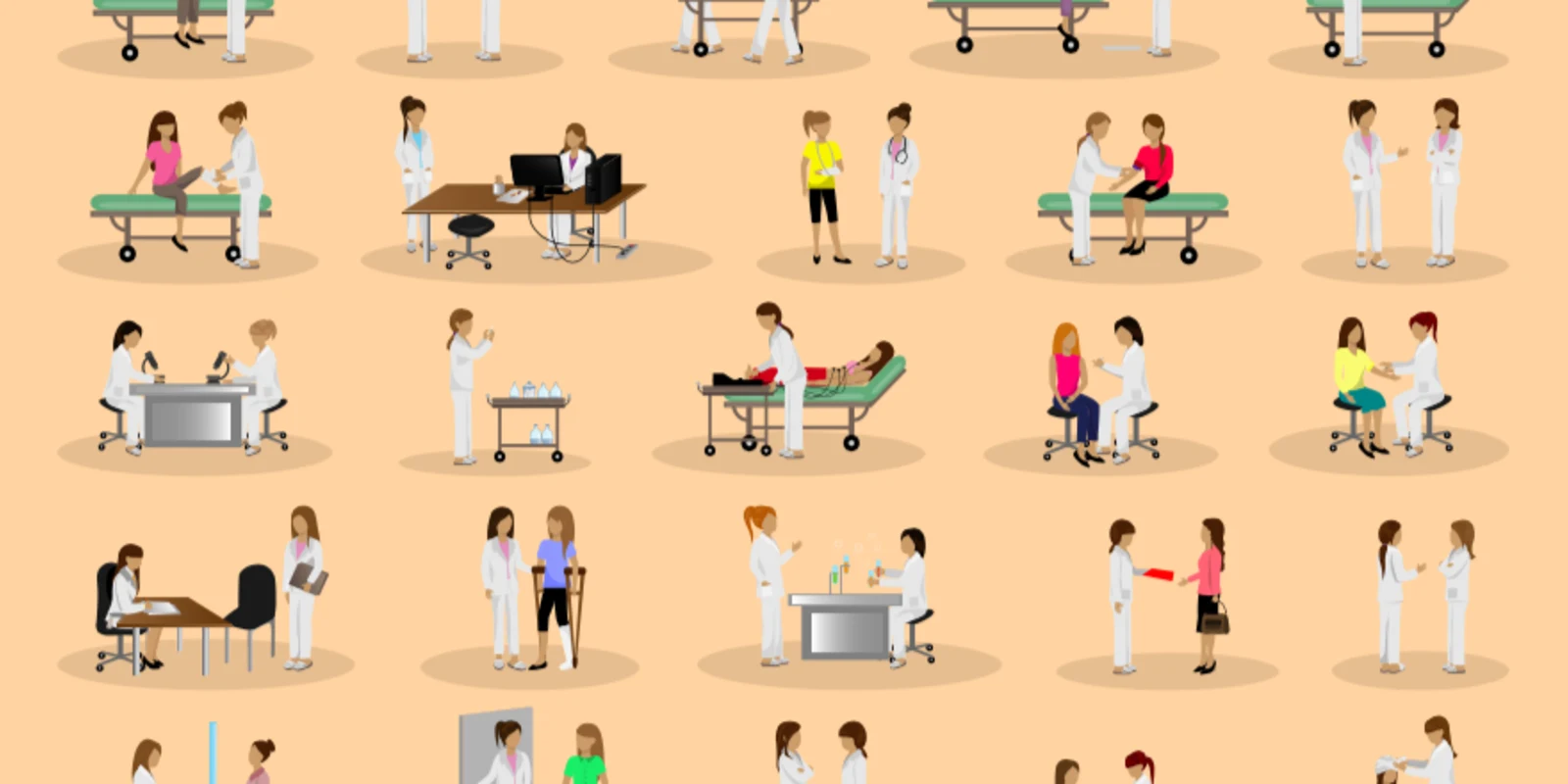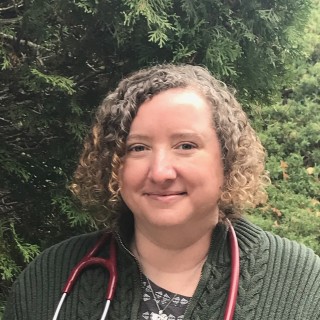
I have been working in pediatric primary care for nearly 5 years post-residency and truly love my work. I currently am dealing with very painful post-herpetic neuralgia and many people with this quit working. At some personal cost I have continued my practice because I find my work day so rewarding I simply can’t imagine not being a practicing pediatrician.
On a given day I might see a newborn fresh from the nursery or NICU and its exhausted but joyful parents and then next see a college student exploring a transgender identity. I might splint a finger, manage a childhood cancer survivor, do a well child check, treat allergies, and assess if a stomach ache is appendicitis or nerves. It never gets old — there is a constant variety. Anything and everything can walk in the door.
It is very gratifying to help children. I recall a toddler who had asthma bad enough that he could not do active play. I placed him on an asthma control regimen and soon he was able to run and play on the playground with his siblings. It felt amazing. In residency a colleague going into critical care was lamenting all the “ears and throats” in clinic. To me I see strep — fixable, ear infection — fixable. Although it is not always true there are many easily solved problems in primary care pediatrics. It makes me happy to be able to make people feel better with a few simple interventions. A series of many small victories is a great work day.
There are often mysteries to solve. A medical school professor used to say primary care clinicians get all the undifferentiated problems. The vague pain or abnormal lab value that has to be evaluated and properly triaged. The hard part of the problem solving is when it first presents and all the information is not yet available. Weeding out the serious from among the routine with limited information is a real challenge. For example, figuring out which vomiting infant is simply a “happy spitter” and which has volvulus or pyloric stenosis. Last year I saw a teen with profound fatigue and abnormal lab values and ended up diagnosing Addison’s. A real zebra. There are plenty of diagnostic challenges. This keeps me on my toes.
There are lives to be saved in primary care but not in the same dramatic way as in the ER. There are no chest tubes or adenosine pushes. Instead I come armed with the PHQ-9. More times than I can count a teen has indicated they are suicidal or has already tried to kill themselves on this screen. One middle-schooler had been in some academic trouble and was in for his yearly physical. On his PHQ-9 he marked that he was having suicidal thoughts. Even though he had seen a school mental health provider recently he had not disclosed this and was suffering in silence. I was able to facilitate treatment for him and several similar teens, reduce their suffering, and save lives. One teen I treated with SSRIs and over a few months I saw a depressed child turn back into a smiling happy teen. At other times a pediatrician can be a kind ear or a mentor and make all the difference for a child. Some children simply need some encouragement for their good choices especially if their family has serious issues involving drug and alcohol abuse. There are many different ways to save a life.
At other times I act as an advocate for children. One of the hardest parts of my job is calling social services on a family. But this call stops abuse and neglect from continuing. I have heard and seen some horrific instances of abuse and been able to step in and help. It is an example of how we can best advocate for our vulnerable patients. Recently two children that I had seen over the course of a difficult removal from their home for abuse were in. Both thanked me sincerely and tenderly for caring for them through this time and sticking up for them. It brought tears to my eyes. Over time I have worked both with families who have had children removed and families who have adopted abused children. This is seeing families both at their best and at their worst. The richness of the human experience plays out in the pediatrician’s office.
I love the long-term connection I have with the children and parents that I might not have found in other specialties. I get to see a baby go through toddlerhood, school age, and the teen years. I recall one toddler who reacted like a wild bear every time I tried to listen to her chest or look in an ear. Over time she transformed into a friendly and outgoing young child who would greet me with a hug. I have seen autistic children improve in communication and self-regulation skills. I truly enjoy talking to the teens and seeing what makes them tick. Learning about their jobs, proms, and artistic talents is so much fun. Over time the connection with patients and families deepens.
Another way pediatrics stays fresh is that the bar on what a pediatrician does keeps moving. Many pediatricians of my parent’s generation do not offer SSRIs or birth control pills. In contrast I was taught about managing mental health and birth control pills in residency. Since graduating I have taught myself about Depo-Provera and now offer it. I am looking into getting Nexplanon training. I look forward to when genetic testing or microbiome management will be a part of my practice. The field grows and expands and there is ample opportunity for lifelong learning.
Despite having days sometimes filled with great physical pain from the post-herpetic neuralgia I love helping kids. I love seeing their smiles and laughter. It brings me out of focusing on myself. I have always volunteered from an early age — either with animals or people. Now I get to make a living helping others. I can’t imagine another life. Primary care pediatrics is more than medicine — it is a calling.
Heather Finlay-Morreale, MD, is a board-certified primary care pediatrician working for Nashaway Pediatrics, a practice run by UMass Memorial in Sterling, Massachusetts. Her interests include mental health, mindfulness, and general well-being.







